Capsule Review: Jeep Grand Cherokee EcoDiesel
To most North American consumers, diesel is an exotic powertrain option, full of promise when it comes to torque and efficiency. It rarely delivers on the promise.
Based on our impressions of the Ram 1500 EcoDiese l, the same 3.0L V6 fitted to the Jeep Grand Cherokee seemed to be extremely promising – especially now that gas prices have spiked to record highs. But something was lost in the transition from truck to SUV.
The most jarring difference is the lack of smoothness that won us over in the Ram. The same engine that is nearly silent and effortlessly smooth in the Ram seems to have a much more audible, agricultural note, with inferior NVH characteristics. Somehow, the leisure-oriented SUV ends up feeling more like the work vehicle.
Diesel die-hards may shrug this off as panty-waist behavior from someone not used to compression ignition engines, but convincing customers to spend the extra $4,500 is going to be a tough sell for anyone who didn’t buy a diesel Grand Cherokee last time around. Especially when they hit the remote start only to be greeted with a school-bus soundtrack on cold starts.
That’s not to say that there are only drawbacks with the diesel. There is prodigious torque on tap (420 lb-ft, and 240 horsepower), and all that power is a great match for the silky smooth 8-speed ZF gearbox. Even compared to the 5.7L Hemi, passing is effortless at speed, while highway cruising tends to downplay the drivetrain noise. Only the woosh of the turbo is heard when you summon the prodigious twist of the VM Motori V6.
The rest of the car, like all Grand Cherokees, is superb. The steering has more feel than many passenger cars, while the air suspension gives superb ride characteristics on any road. I am on record as being UConnect’s biggest fan, and I can think of no better car to cover long distances in. Except for a gasoline powered Grand Cherokee.
Even though the EcoDiesel returned about 27 mpg (and that’s cruising at 75 mph with the A/C on – the EPA rates it at 28 mpg highway), I would find it hard to justify buying anything beyond the Pentastar V6/8-speed combo, similar to what Jack’s father bought.
If you are doing serious towing, or covering enough miles to justify the added cost of the diesel engine (and the higher resale value of the diesel should also help), then perhaps it makes sense. For myself, and many other consumers, the V6, V8 – hell, even the SRT – models will make more sense, given how quickly the higher trim level Summit models with the EcoDiesel can breach the $60k barrier.
As far as I’m concerned, the Grand Cherokee is still the best SUV on sale at any price. It has just the right mix of luxury, performance and discretion to be appropriate in any environment. The driving experience is more in line with premium European offerings than anything built by America or Japan. And given all this, I had high hopes for the diesel, and it did deliver on the promise of V8-like power with much better fuel economy. But I’m not sure it’s the all-purpose solution that many people were expecting. For me, that would be a nicely equipped Laredo with the gasoline V6.
More by Derek Kreindler
Latest Car Reviews
Read moreLatest Product Reviews
Read moreRecent Comments
- SCE to AUX My son cross-shopped the RAV4 and Model Y, then bought the Y. To their surprise, they hated the RAV4.
- SCE to AUX I'm already driving the cheap EV (19 Ioniq EV).$30k MSRP in late 2018, $23k after subsidy at lease (no tax hassle)$549/year insurance$40 in electricity to drive 1000 miles/month66k miles, no range lossAffordable 16" tiresVirtually no maintenance expensesHyundai (for example) has dramatically cut prices on their EVs, so you can get a 361-mile Ioniq 6 in the high 30s right now.But ask me if I'd go to the Subaru brand if one was affordable, and the answer is no.
- David Murilee Martin, These Toyota Vans were absolute garbage. As the labor even basic service cost 400% as much as servicing a VW Vanagon or American minivan. A skilled Toyota tech would take about 2.5 hours just to change the air cleaner. Also they also broke often, as they overheated and warped the engine and boiled the automatic transmission...
- Marcr My wife and I mostly work from home (or use public transit), the kid is grown, and we no longer do road trips of more than 150 miles or so. Our one car mostly gets used for local errands and the occasional airport pickup. The first non-Tesla, non-Mini, non-Fiat, non-Kia/Hyundai, non-GM (I do have my biases) small fun-to-drive hatchback EV with 200+ mile range, instrument display behind the wheel where it belongs and actual knobs for oft-used functions for under $35K will get our money. What we really want is a proper 21st century equivalent of the original Honda Civic. The Volvo EX30 is close and may end up being the compromise choice.
- Mebgardner I test drove a 2023 2.5 Rav4 last year. I passed on it because it was a very noisy interior, and handled poorly on uneven pavement (filled potholes), which Tucson has many. Very little acoustic padding mean you talk loudly above 55 mph. The forums were also talking about how the roof leaks from not properly sealed roof rack holes, and door windows leaking into the lower door interior. I did not stick around to find out if all that was true. No talk about engine troubles though, this is new info to me.



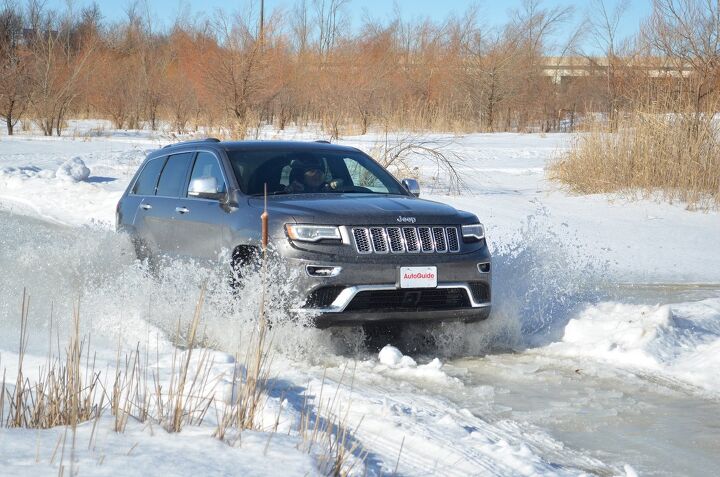




















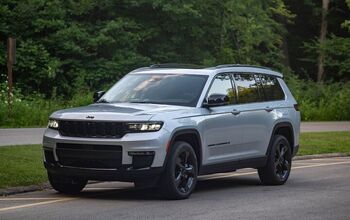
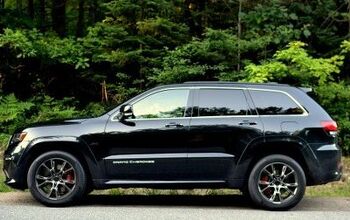
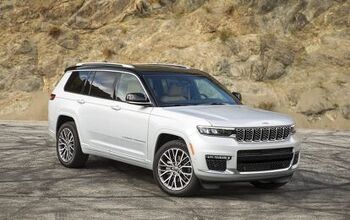
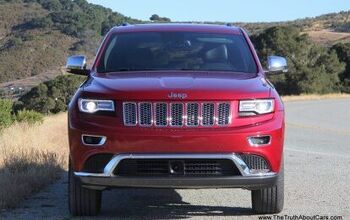


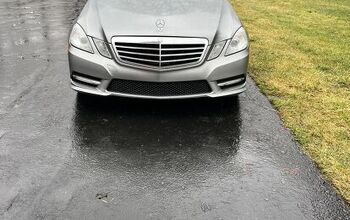





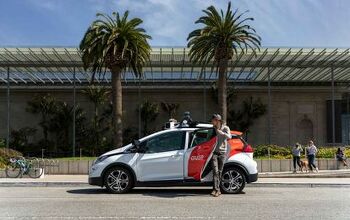

Comments
Join the conversation
I have the JGC Ecodiesel and love it, the audible sounds, economy and drive. I don't know why so many writers feel they need to advise us on what we should do with our money, shut your fn pie hole and shove your opinion in your ass. The initial cost will be made up in the fuel economy and resale. I was able to get over 33 average in a drive from CA to CO recently with the 4x4 model.
Re pricing on the JGC Diesel, BMW learned quickly that it needed to eliminate the price premium for the X5 35d and 335d models when it introduced them in 2009. So BMW USA offered a $3500 "Eco Credit" on the 35d models, initially to stimulate interest with the hope of whittling it down to zero as interest surged. My understanding is that customers thronged to buy the X5 35d (something like 40% of X5 sales were diesels) but BMW came to realize that they would have to keep the credit in place or customers would not buy it as readily. I am not sure how Audi or MB handle this, as they also carry premiums over the gas V6 versions of the ML/GL and Q7 SUV's, but I don't think any of BMW, Audi or MB see the diesel getting close to, if not surpassing, the V8 versions in price. Like you see with the GC diesel. Jeep should rethink the pricing on this if it wants to make the diesel a long term viable option. FYI I own an X5 35d and while it is a wonderful car in most respects, the diesel is particularly rattly, more so than the Touareg, MB, Audi, Porsche or Jeep diesels.